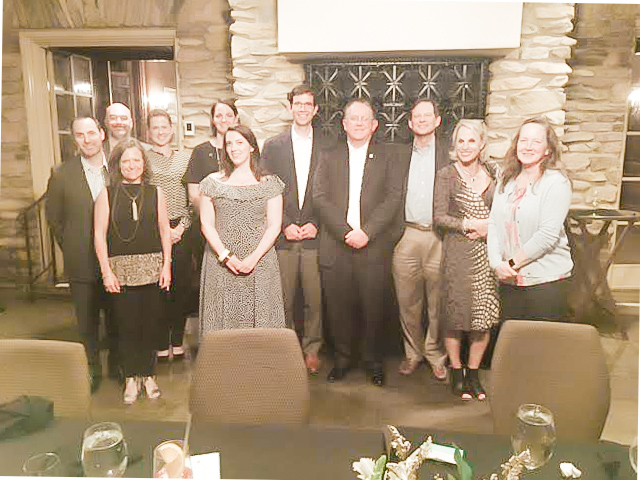Leadership & Character | Winston-Salem, NC
Members of the Alumni Council, their spouses, and Wake Forest staff gathered on September 14, 2017, at Graylyn Conference Center in Winston-Salem to discuss leadership and character.
Our discussion had two overarching themes: First, leadership can be displayed by overcoming personal obstacles in order to contribute to the community in nontraditional ways. Second, character is often portrayed in seemingly small things done everyday, like standing by our word with regard to a service contract, or blowing leaves off a neighbor’s yard.
Our group shared some remarkable stories of the individuals behind corporations stepping up to help those affected by the recent storms: the furniture store owner in Houston who opened his store to the community, and hotel staff and executives who acted heroically and generously on behalf of their guests. Both stories were examples of forgoing profit for compassion and impact.
On the question of how we integrate leadership and character into our everyday lives, one person in our group pointed out the irony that in some arenas, the Wall Street Journal guides decisions six days of the week, while the Bible might be someone’s moral code only one day of the week. We discussed a concept introduced by New York Times columnist David Brooks, who writes about “resumé virtues” and “eulogy virtues” — external achievements versus living a morally-centered life. We concluded that some people lead an exemplary life that demonstrates both types of virtues.
The topic of virtues led to our discussion about quiet contributions — making an impact without expectations of public accolades – or “peacocking” versus doing things quietly. One person in our group brought up the expression, “character does cost.” In other words, some people exhibit character by making significant contributions at a huge price — losing their families, their health or their wellbeing.
Many people in our group cited personal or professional mentors who exhibit character and leadership. These mentors don’t have to be older; we can learn from examples of character in young people, even those who are disenfranchised and show courage through adversity.
We then connected our earlier discussion to how character can be taught and modeled to students at Wake Forest:
- Modeling leadership and character can come from “positive collision moments” on campus — serendipitous interactions between people that inspire desired behavior.
- The focus on sense of belonging and wellbeing at Wake Forest will inspire positive leadership moments.
- How can we encourage students to focus on eulogy virtues? One exercise used with students is the “funeral exercise” — asking them to articulate some thoughts about what they’d like to hear in their eulogy, and then asking if they are living that life now.
- Our hope is that Wake Forest will stretch students beyond their comfort zone. They may arrive with a strong sense of character, but this is tested in new ways during their college experience. We hope that students graduate with an understanding that it’s okay to entertain two conflicting viewpoints simultaneously.
At the conclusion of the meal, we all agreed that the gathering provided a meaningful opportunity for us to talk about important subjects. We are grateful that Wake Forest is providing this forum to its alumni family across the country.

